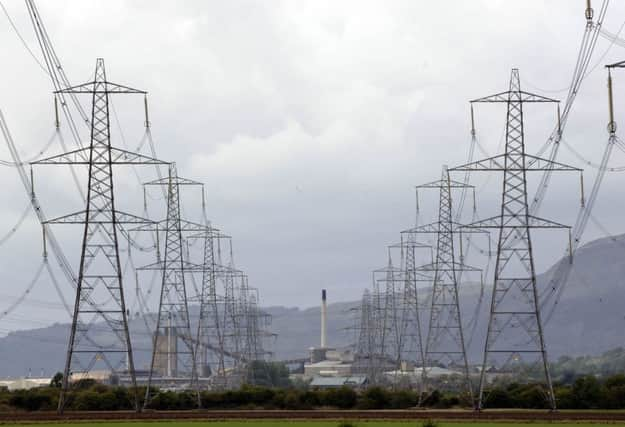Leaders: Salmond should not bank on hydro


It made for a big leap in living standards, not just because Highlanders could have reliable electricity to light and heat their homes, but also because it powered a growth in industry and commerce.
But will the new aims he announced yesterday for a second expansion of hydro power, more than doubling current generation, come to be seen as a second such revolution?
Advertisement
Hide AdAdvertisement
Hide AdThat he rode on the coat-tails of ScottishPower’s decision to investigate the costs and technical feasibility of more than doubling the generating capacity of its Cruachan pumped storage plant beside Loch Awe helped give the appearance of some substance behind his words.
In principle, an expansion of pumped storage would be welcome. It is regarded as the only reliable means of storing wind energy which gets generated at times when there is no demand for it. Having more such storage would help to make wind a more reliable source of electricity and also further reduce carbon emissions.
But the facts are that this is a feasibility study that will take up to two years to complete and the costs and employment creation potential of the project are, at this stage, only a very rough guesstimate. Like ScottishPower’s schemes for carbon capture and storage at Longannet power station, and its Argyll Array offshore wind farm, the Cruachan expansion may turn out to be too technically difficult or too expensive for it to go ahead.
It also seems probable that for it to work, effectively as a 1,000 megawatt storage battery for wind power, the reservoir halfway up Ben Cruachan will have to be increased in size quite dramatically, which may make it distasteful to environment and landscape-lovers.
Mr Salmond already appears to regard the project’s prospects of coming to fruition as more likely than not. But, and regardless of whether it ever goes ahead or not, it will serve a valuable political purpose as the investment decision, somewhat conveniently, will only be taken after the independence referendum.
In this context, energy is a problem issue for Mr Salmond. In the UK, expansion of Scottish renewables, which he sees as a major source of jobs as well as cutting carbon emissions, is dependent on a subsidy which is mostly financed by consumers in England and Wales.
He argues that such will be England’s needs, that people and businesses south of the Border will be happy to continue paying their foreign neighbour the subsidy to keep their lights on. But there can be no guarantee of that.
History may record that Mr Salmond, far from ushering in a new hydro revolution, waved a diversionary red flag for political purposes.
Weather is culprit not humans
Advertisement
Hide AdAdvertisement
Hide AdPEOPLE living along the banks of the Thames whose homes have been flooded or are threatened with inundation deserve all the help that the relevant authorities can give and our sympathy. To have a cherished home wrecked by muddy floodwater is soul-destroying.
Amidst the anguish, it is understandable that people will get angry and seek someone to blame. Many people tend to think of the world as a place where humankind is now in charge, equipped with the technology and resources to prevent such disruptive events from happening.
But is this really true? And does it serve any good purpose to demand that heads believed to be responsible should roll?
Certainly, those in charge of England’s Environment Agency and ministers responsible for it have a case to answer in Somerset. Pleas that rivers should be dredged were rejected and the response that this would only have been a partial solution suggests that it might have partly prevented some of the flooding there.
But no such argument seems to apply to the Thames Valley. Fire crews report that they have simply never seen such depths of floodwater and flood gauges record that the river is at its highest level since they were installed more than 20 years ago.
This argues that the blame firmly attaches to the weather, which has been responsible for dumping record amounts of rainfall on southern England. These record downfalls can in turn be blamed on climate change, which is making extreme weather events much more frequent.
Seeing someone in authority being given the sack might make some people feel better, but it does nothing to fix the real problem – the weather.